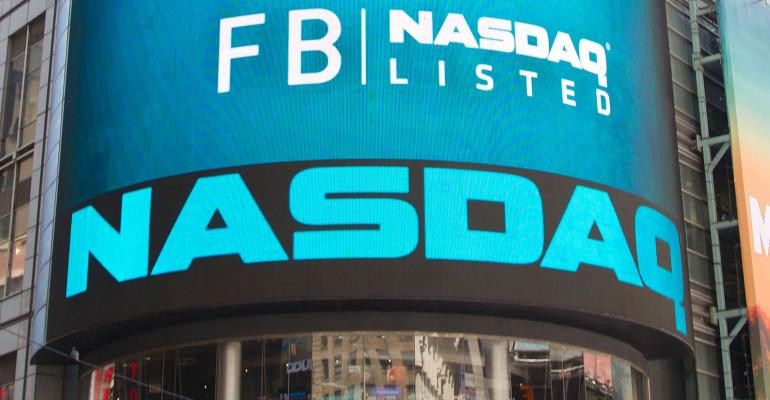When Mark Zuckerberg launched Facebook, he likely didn’t expect that it would bring about a revolution in the way investors invest. As the social media phenom readied itself for IPO in 2012, both institutional investors and sophisticated individual investors identified the opportunity to access the steepest part of Facebook’s growth curve and began buying shares from early employees and investors prior to the IPO. The vibrant market for Facebook shares was a watershed moment, establishing a new market for actively trading private securities, albeit ones with high barriers to entry and distinct sets of challenges.
Ever since, private market participation has continually grown and diversified, driven by a rapidly increasing number of unicorn companies and the success stories of early investors who achieved outsized returns. As the pool of buyers for shares of privately-held companies continues to broaden, and the market selloff of 2022 and early 2023 offers an opportunity to gain access to high-growth companies at large discounts, High Net Worth Investors (HNWIs) have recently surged as the leading buy-side participants in this segment of the market.
This broadening investor interest embodies the natural progression of the market. Diversification among buyers and sellers is a fundamental tenet of any thriving financial ecosystem. The expansion of HNWIs' involvement in pre-IPO securities is not just a trend; it's an essential chapter in the story of financial evolution.
Research and Due Diligence: Bridging the Gap
Since the beginning of the private securities market, hedge funds, pensions and other institutional money managers have traditionally been the most active buyers, due in large part to their scale and networks. Compared to even the most well-capitalized individuals and family offices, institutional buyers simply have more information access and deployable resources to gain market insights. For decades, this created a significant knowledge advantage for institutions. However, this gap is rapidly closing.
Naturally, as private sector investment has matured and is more widely discussed, market education and information is more prevalent, which has enabled HNWIs to better understand both the draw of allocating to this market and the inherent risks. Amidst these shifts, HNWIs are seeking advisors who have the expertise and relationships necessary to help them effectively navigate the somewhat opaque market for private securities.
Meanwhile, recognizing HNWIs’ access to private markets is predicated on a need for specialized guidance, advisors are attracting potential clients through the development of relationships with shareholders, private companies’ general counsels and other potential buyers who may want to partner for customized structures such as special purpose vehicles. These relationships are integral to execution in the private markets, which is much more complex, versus the instantaneous matching model of a public exchange. The brokers who advise on and broker deals, streamlines the pricing process and helps guide investors though the investment processes set by each individual private company.
Why Now: Drivers of the Current Market Landscape
Despite having its own unique set of drivers, the public market does have a correlated impact on private markets. The IPO window, which had stalled for about 18 months, saw growth-focused investors who previously had a focus on the IPO market sitting on capital. Meanwhile, active sellers in the secondary market, often early employees who were granted shares, needed to avoid potential losses via expiring options and restricted stock units. Without the imminent prospect of a liquidity event, sell-side prices have dropped precipitously over the ensuing period.
Even before the IPO slowdown in 2022 and the first half of 2023, companies were staying private for longer, benefitting shareholders and potential buy-side investors unconstrained by liquidity concerns or expectations from external investors, which institutional funds often face. Within that landscape, HNWIs possess a unique freedom to invest at earlier phases in the company’s lifecycle in a more tailored manner which aligns with their risk appetite and long-term return goals.
Furthermore, this investment avenue synergizes with the changing investor mindset. HNWIs are increasingly prioritizing strategies that span beyond their traditional areas of focus. The allure of earlier stage investing aligns with a broader movement by HNWI’s toward opportunities that maximize long term yield.
The Cocktail Stock Theory
Interestingly, there’s also a human element which provides some investors motivation beyond returns. And it goes back to those first secondary trades of Facebook.
With favorable market dynamics and a mainstream focus on the rise of unicorn companies, there is an increasing investor interest driven by what we call, “Cocktail Stocks:” the investments that HNWIs see as elevating their personal stock with pride of ownership for what are regarded as desirable companies, ripe for cocktail party discussions.
Investors can purchase the stock earlier, while a company is private, and forever have the distinction as an early investor in household names like AirBnB, Snowflake and Spotify.
The entrance of HNWIs into the market for late-stage private securities is a culmination of financial innovation and evolving market dynamics. From the marketplace’s inception with the phenomenal success of Facebook, this trend has metamorphosed into a sought-after investment strategy. With private market brokers bridging the research gap, increasing access and providing education and guidance, it has paved the way for HNWIs to actively participate in late stage private investments and achieve access to an asset class traditionally only available to venture capitalists. As the market landscape continues to shift, private securities stand as an attractive proposition, offering potential opportunities for those willing to navigate the market’s complexities.
The involvement of HNWIs in this nascent sector is a testament to the market's growth capacity and appeal for a diverse set of investors. It's clear that HNWIs participation in the private markets is not just a fleeting phenomenon; it's an enduring trend with the potential to reshape investment strategies for years to come.
Glen Anderson is Co-Founder & CEO of Rainmaker Securities.





